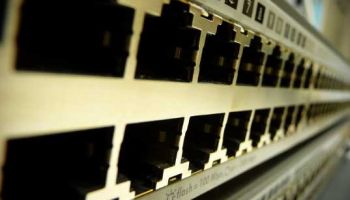Cisco, HP, Juniper Drive Down Ethernet Prices

Ethernet switch markets saw revenue declines despite a rise in the number of ports, say Dell’Oro and Canalys
Cisco Systems is facing increasing pressure from Hewlett-Packard and Juniper Networks in an Ethernet switching market that saw revenue decline in the first quarter, due to pricing competition, cutbacks in public spending and seasonal softness, according to market research firms Canalys and Dell’Oro Group.
In separate reports, analysts with each firm said they expect pressures on revenue to continue in the second quarter and throughout 2011, though they noted that the growing 10 Gigabit Ethernet market will remain strong as data centre administrators continue the move from 1GbE environments.
Price Wars Fuel 10Gb Ethernet Growth
 “With most segments expected to decline in 2011, 10 Gigabit Ethernet top-of-rack switches will be the strongest-performing sector as servers are still in the initial stages of migrating from multiple Gigabit Ethernet connections to two 10 Gigabit Ethernet connections,” Alan Weckel, director of Ethernet switch market research at Dell’Oro, said in a statement.
“With most segments expected to decline in 2011, 10 Gigabit Ethernet top-of-rack switches will be the strongest-performing sector as servers are still in the initial stages of migrating from multiple Gigabit Ethernet connections to two 10 Gigabit Ethernet connections,” Alan Weckel, director of Ethernet switch market research at Dell’Oro, said in a statement.
Canalys said the 10GbE space saw 69.9 percent revenue increases over the first quarter in 2010. Meanwhile, revenue of 1GbE ports grew 12.4 percent.
“We expect the battle for data centre networks to intensify, as leading vendors aim their fabric strategies at creating simplified architectures,” Matthew Ball, director of enterprise services at Canalys, said in a statement. “The battle for campus and branch-office environments, however, should not be ignored.”
Overall, Dell’Oro said Ethernet switch revenue fell 12 percent over the fourth quarter of 2010. Canalys said revenue was down 8.8 percent over the first quarter of 2010.
According to Canalys, Cisco continued to lead the market, with a 68.2 percent share. That was followed by HP with 14.1 percent, Juniper with 2.4 percent and Brocade with 2.2 percent. However, Cisco saw its market share drop from 73.1 percent in the first quarter of 2010, while both HP – after its $2.7 billion acquisition of 3Com last year – and Juniper gained share.
“Cisco is facing intense pressure on both its core switch and overall enterprise networking businesses,” Ball said. “It is up against aggressive competition from Juniper Networks in routing, Riverbed Technologies in WAN optimisation, F5 Networks in application-delivery controllers and Brocade in storage networking.”
That intense pressure played a role in the revenue decline in the overall market, due to pricing competition between Cisco, HP and Juniper, he said, noting that while port sales increased 2.5 percent, total end-user revenue dropped 12.3 percent over the last quarter, to $4.6 billion.
“If current trends continue, vendors and channel partners will have to sell more volume than expected to reach revenue targets,” Ball said. “This competition could trigger a wave of merger and acquisition activity among smaller switch vendors as they try to gain economies of scale.”
Cisco executives over the past several quarters have struggled with disappointing financial numbers, in particular seeing weakness in its core switching and public sector businesses.
Dell’Oro said the strongest growth in 2011 would be in data centre deployments, such as businesses using 10GbE top-of-rack, blade switches and modular switches. In the top-of-rack space, the top vendors by revenue were Cisco, Arista and IBM. For blade switches, it was HP, IBM and Cisco, and for modular switches, it was Cisco, HP and Brocade.